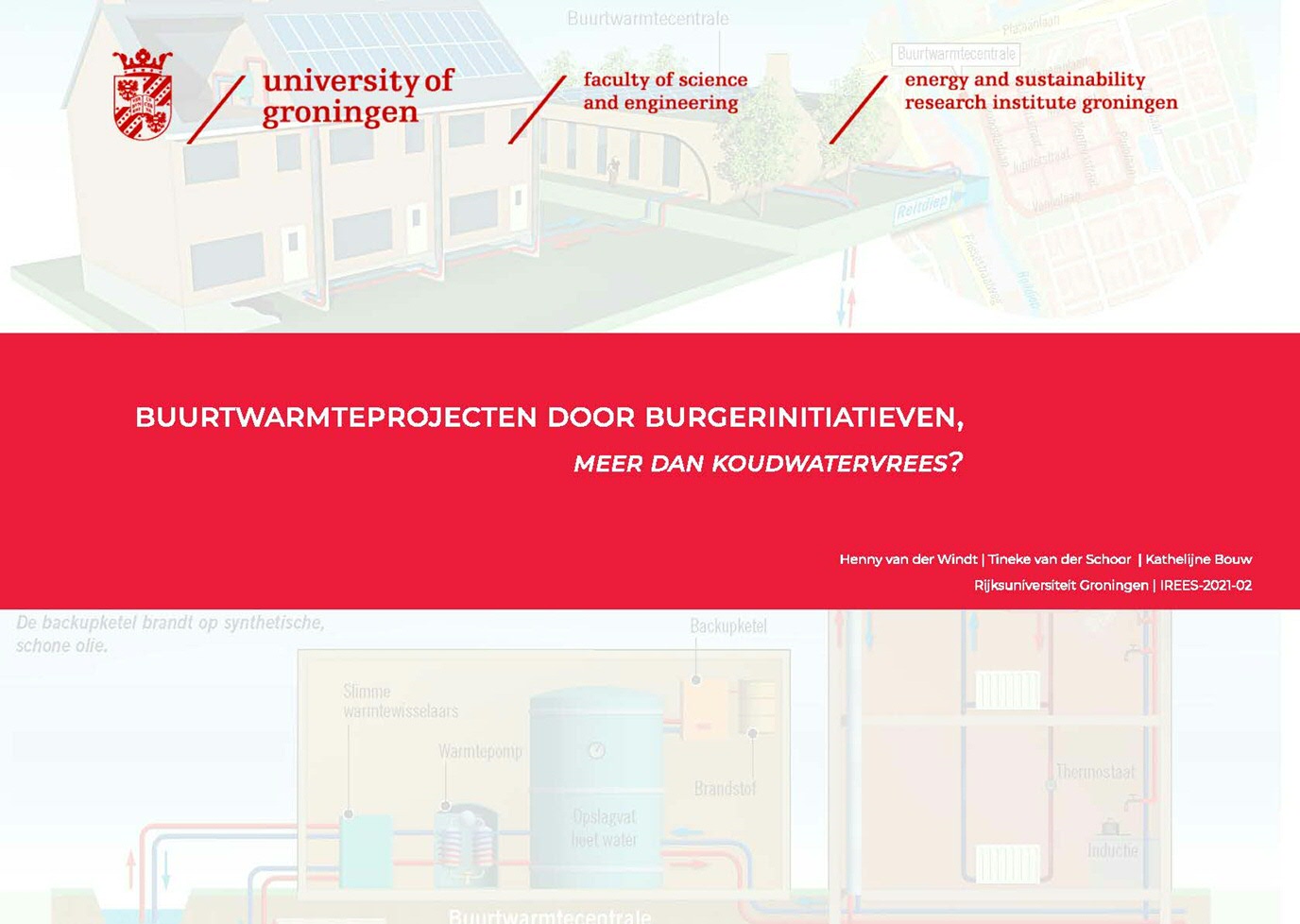What makes district heating cooperatives successful? | Final report "Neighborhood Heat" project

In the Netherlands, hundreds of energy cooperatives try to accelerate the energy transition by developing plans for collectively owned wind and solar projects. During the last 5 years so-called buurtwarmte (“neighborhood heat”) cooperatives were founded to realize collective sustainable district heating systems.
We have studied 4 front runners, in Amsterdam, Den Haag, Groningen and Wageningen, together with colleagues of de Hanzehogeschool, TNO and a local energy cooperative. We were interested in the question to what extent Dutch local energy cooperatives are able to develop and realize collective heating networks. Eventu-ally each of our four cases was able to develop a heating system plan and two of them are in the pre-engineering stage, but it turned out to be far from easy to develop such a system. We identified five main problems.
First of all it was a challenge to find a local sustainable energy source. After con-sidering geothermal energy and biomass, three of the groups will use aqua thermal energy from a river in the neighborhood, in addition to WKO and /or to collective heat pumps.
For electricity, the initiatives consider on shore or off-shore wind energy. Another problem was to make the energy affordable, but because of the non-profit cooperative structure they probably will manage that. In addition, within the frame work of the Programma Aardgasvrije Wijken (“program natural gas free neighborhoods”) central government was willing to subsidize these projects.
The cooperative structure made it more easy to involve citizens in the plans, although it was still time-consuming to organize all kinds of activities to make the people enthusiastic and to include them in decision-making in a serious way. A fourth problem was to find the right private partners to design and implement a local, social and sustainable energy system. Many private parties such as banks or large project developers were not used to work together with citizens groups in such a co-creation process.
The last problem concerns the technology. It was hard to develop a local reliable affordable, collective owned and sustainable energy system.
Despite these problems, the initiatives have been able to make a design, decision-making structure and business model for a district heating system which was supported by most of the citizens and relevant parties. In our study we found that the success of the initiative depends on at least four additional internal fac-tors: the knowledge and skills it has or is able to develop, the democratic legitimation and visibility, the vision and organizational strength and the network it has or is able to develop. For local energy initiatives with large networks, substantial technical and other knowledge and a high degree of organization and social support it was more easy to get a position as a relevant societal party which should be taken seriously and to make use of biophysical conditions and techno-logical options. In all our case studies the initiatives were able to get governmental funding so the group could professionalize, and to find at least one large partner, for instance a housing association, a utility, DSO or a large oil company, which enabled them to develop reliable, sustainable and affordable proposals and energy systems
All in all, our results suggest that to be promising, a local sustainable energy project should have been aligned to external social networks and biophysical condi-tion and at the same time be driven by a motivated, visible, goal-oriented, skilled, well-organized group of participants.
Henny van der Windt | Integrated Research on Energy, Environment and Society (IREES) - University of Groningen
Tineke van der Schoor | Hanzehogeschool Groningen - Kenniscentrum NoorderRuimte
Kathellijne Bouw | Hanzehogeschool Groningen, Integrated Research on Energy, Environment and Society (IREES) - University of Groningen
More news
-
15 September 2025
Successful visit to the UG by Rector of Institut Teknologi Bandung
